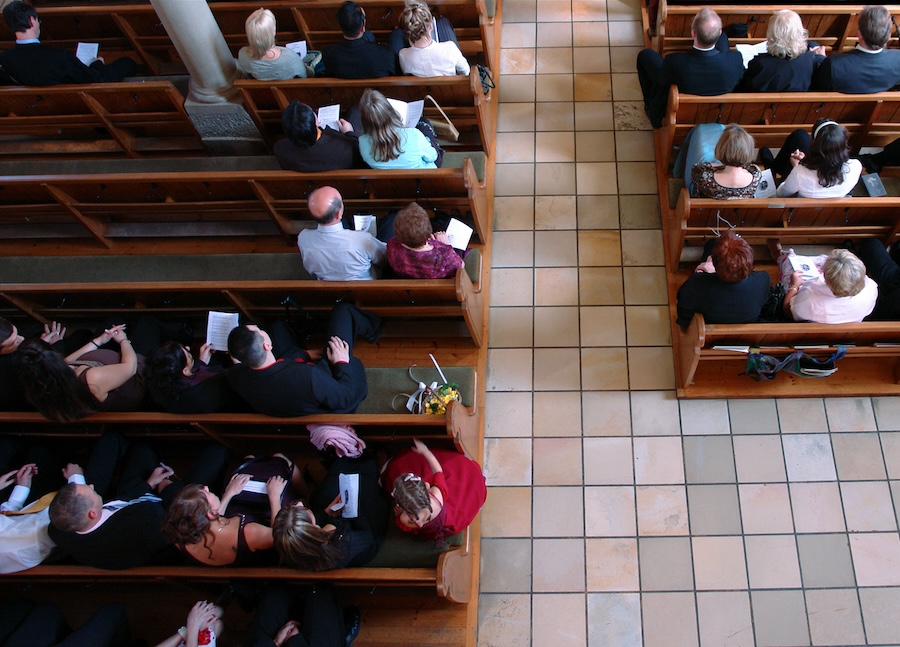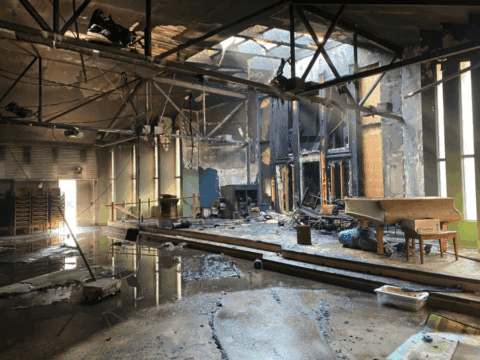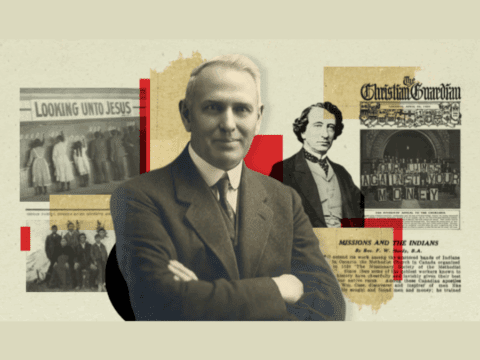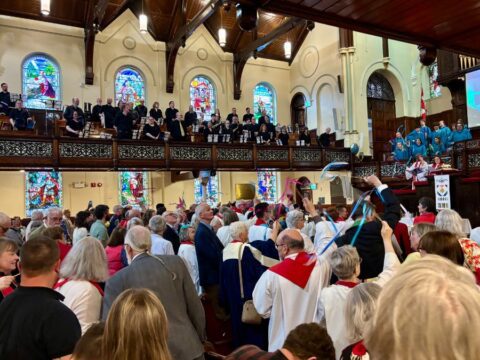Regional staff worked tirelessly to bring out the vote in the last months of a remit to support removing barriers to independence for the Indigenous church within The United Church of Canada.
Julie Graham, regional minister of justice and communication for Living Skies, Northern Spirit and Prairie to Pine Regional Councils explains that some pastoral charges voted in short order following the Regional Council’s vote in favour of the remit last summer. All of the church’s 16 regional councils voted in support. With 80 percent participation, a majority of 2,000 pastoral charges also agreed.
“But there were also some who delayed their vote quite a bit because they were having ongoing conversations in the [pastoral charge] board,” Graham says. “There were a few gray hairs earned over that,” she says.
For months before the March 31 deadline, regions facilitated learning and answered questions. As the deadline loomed, phone teams called uncommitted pastoral charges. That work sometimes meant redirecting conversations to anti-racism and reconciliation leadership, lay leaders, ministry personnel or pastoral charge supervisors. Graham coordinated overall efforts for Prairie to Pine, Living Skies and Northern Spirit regions. She says elected members did the “heavy lifting” of phoning every pastoral charge who had not yet voted.
“Their work got us there. And there are insights and occasional hard truths that emerged during that process,” she says.
Lynne Sanderson, a member of Prairie to Pine Regional Council Executive and Pat Bird, chair of Prairie to Pine Regional Council’s committee on community of faith support, were part of the Prairie to Pine outreach team.
“This has been the most perfect example of what it means to change a system,” Bird said of the results. “It feels good.”
But according to Sanderson, the process revealed the number of churches without leadership to keep the congregation informed.
“They may have a regional rep who might share something with them,” she says, “but a lot of the small churches don’t have people who are engaged in the greater church.”
According to Graham, some of the most common questions related to what the remit was about, who was supposed to vote and where the money was going to come from. Confusion about the word “autonomous” led some to mistakenly understand that the Indigenous church wanted to separate from The United Church of Canada.
More on Broadview:
Rev. Thérèse Samuel, minister of right relations and social justice for Antler River Watershed, Western Ontario Waterways and Horseshoe Falls, notes that the remit process reflected colonialist thinking and racism embedded in broader Canadian society.
“It was a colonial process about a colonial structure,” she says.
Samuel says that a lot of oppressive narratives about Indigenous people emerged during the process, and she was surprised by how deeply she felt that as a person of colour.
“It really touched on my own experiences of colonization and racism … I felt personally wounded.”
Ultimately though, Samuel explained, people need spaces to ask questions so they can understand their assumptions and grow beyond them. The remit provided that.
Graham said that a key learning of the remit is how little much of the wider non-Indigenous church understands about the Indigenous church and Indigenous peoples generally. “It’s a reality we need to accept and to keep working on,” she said.
***
Leslie Sinclair is a freelance journalist in Toronto.
CORRECTION: A previous version of this story stated that Julie Graham was a Rev. and misstated the deadline for voting on the remit. This version has been corrected. A line has also been added to be clear about the number of pastoral charges that voted.















Hooray to all those in the field for getting it done and thanks to Broadview for telling the tale!
For 10 years the United Church of Canada has been de- constructing and paying the General Council Executive to do it. Having a General Secretary who believes the church is racist at its roots, is self destructing. Everyone in paid decision making positions are the ones voting for the civil rights of the world and using our money to do it. What about our spiritual civil rights of the Holy Spirit as Christians, in a Church that we love? There is no financial or spiritual support for the individuals sitting in the pews, if the pews or people, are still there? The prevailing commitment is toward the teachings of Martin Luther King Junior as saviour, not our Lord and Saviour Jesus Christ. The Wonderland of the so called indigenous church is a non sequitur. Since 1965 I have had to listen to the futile ideologies, rituals and spiritual fantasies of people longing for a spiritual center that can give them peace. Also, in the civil rights movement that our church has extended to the global angst of discord, rebellion and destruction and the fairyland of cultural heritage. The world is at risk of imploding the same way the United Church of Canada is. What are you going to do to fix it?. For 90 years we have had the grace of God to fix it but people in the last 10 years are old and tired of trying to fix it with internal strife beating everyone down instead of building them up. John 14:6 Jesus answered, I am the way the truth and the life. No one comes to the Father except through me.